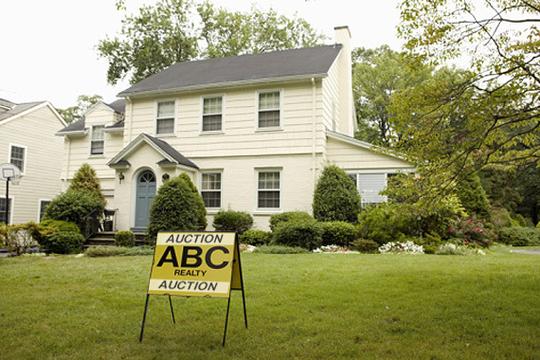

Philip and Denise Powell lost their home in 2011 after Philip’s hours as a pastor were cut in half and Denise was sidelined by a surgery. But they were determined to become homeowners again, so they rolled up their sleeves and got to work.
The Highland, California, couple got financial counseling. They took control of their credit reports, tackled high-interest debts and cut spending. In 2015, they bought another home.
“We thought we’d never recover,” Philip Powell says, recalling the devastation they felt after losing their home. “No one in California was ready for the crash; it hit us hard.”
Their story is typical of the more than 9.3 million homeowners who lost a home through a distressed property sale from 2006 through 2014, according to the National Association of Realtors.
As rents rise, low mortgage rates persist and the economy gradually improves, some who lost their home in recent years will be able to re-enter the housing market. A 2015 study by the NAR found that 1.5 million previous homeowners might be eligible to buy within the next five years, based on the time it takes to boost credit scores and save for a down payment, as well as mandatory wait times to buy another house.
For those looking to put down homeownership roots once more, here are five tips:
1. Know your options: You no longer have to wait seven years after a bankruptcy or foreclosure to buy another home, says Ray Carlisle, president of the national nonprofit NID Housing Counseling Agency. For homeowners who had extenuating circumstances such as prolonged income loss or major medical expenses, Fannie Mae has shortened its waiting periods to two years after a pre-foreclosure sale — a short sale or deed in lieu of foreclosure — and to three years after a foreclosure. That’s down from the standard waiting periods of four and seven years, respectively.
To get a Federal Housing Administration loan after a foreclosure, the standard wait time is now three years — and as little as one year with extenuating circumstances, says April Brown, a spokeswoman for the Department of Housing and Urban Development.
2. Change your bad money habits: Focus on paying down debt, creating a solid savings strategy and avoiding new splurge purchases. Ask yourself, “How much house can I afford?” Saving for a down payment and closing costs is one of the biggest hurdles that homebuyers face. Start socking away bonuses, windfalls, tax refunds and other extra cash in a savings account. Setting up automatic deposits to your savings account is another way to grow your down payment reserves, and it removes the temptation to spend money unnecessarily.
3. Repair your credit: The FHA’s minimum credit score requirement for maximum financing is 580. Some lenders offer loans at that minimum, Carlisle says, but other mortgage lenders require a FICO score of 640 or higher. Paying off high-interest debt on time each month and not taking out new loans or running up your credit cards will help build your credit score. Also, ask your utility providers or landlord to report your on-time monthly payments to the major credit bureaus to have those count on your credit report, too.
4. Beware of predatory lenders: If you encounter lenders that try to seduce you with “special” zero-down home loans or real estate agents who recommend rosy rent-to-own or land contract agreements, run the other way. Carlisle says that 80% of NID’s clients are minorities who are disproportionately targeted by predatory lenders. Never sign any contract you’re unsure of, and have a housing counselor, real estate attorney or different lender look it over to get a second opinion.
5. Seek help from the pros: Not only can housing counselors help you address credit issues and set up a savings plan, they can connect you with state, local and private resources that can ease your path to homeownership, Brown says.
Next steps
If you’re looking to buy again, reach out to a HUD-approved housing counselor before you begin. Also, the National Foundation for Credit Counseling provides help to more than 3 million people each year. Find an NFCC-certified housing counselor to discuss your options.
Original Article Link